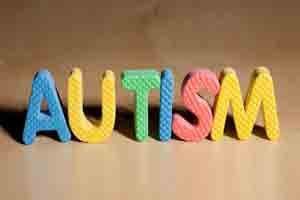- Home
- Editorial
- News
- Practice Guidelines
- Anesthesiology Guidelines
- Cancer Guidelines
- Cardiac Sciences Guidelines
- Critical Care Guidelines
- Dentistry Guidelines
- Dermatology Guidelines
- Diabetes and Endo Guidelines
- Diagnostics Guidelines
- ENT Guidelines
- Featured Practice Guidelines
- Gastroenterology Guidelines
- Geriatrics Guidelines
- Medicine Guidelines
- Nephrology Guidelines
- Neurosciences Guidelines
- Obs and Gynae Guidelines
- Ophthalmology Guidelines
- Orthopaedics Guidelines
- Paediatrics Guidelines
- Psychiatry Guidelines
- Pulmonology Guidelines
- Radiology Guidelines
- Surgery Guidelines
- Urology Guidelines
New method to track ASD in boys discovered

New York : Researchers have developed a new method to map and track the function of brain circuits affected by autism spectrum disorder (ASD), especially in boys and identify the most effective treatment for an individual.
The functional biomarker physically measures the progress of patients with behavioural problems a tool that has been elusive in autism treatment.
"This is significant because biomarkers give us a 'why' for understanding autism in boys that we haven't had before," said one of the researchers Kevin Pelphrey, professor and director of the Autism and Neuro developmental Disorders Institute at the George Washington University in the US.
The team found that the brain scan data could be an effective indicator of the function of the circuit in younger children and older patients alike.
It is particularly relevant for ASD patients who are difficult to diagnose and treat by providing a more definitive diagnosis and in developing a treatment programme when it is not clear if behavioural, drug or a combination of the treatments will be most effective.
"The behavioural symptoms of ASD are so complex and varied it is difficult to determine whether a new treatment is effective, especially within a realistic time frame," said led author Malin Bjornsdotter, assistant professor at the University of Gothenburg in Sweden.
"Brain function markers may provide the specific and objective measures required to bridge this gap," she added in the paper published in the journal JAMA Psychiatry.
In addition, the study also provides evidence that brain imaging is an important intervention tool for autism than the currently used functional MRI.
The team analysed a series of 164 images from each of 114 individuals and discovered the brain scans of the social perception circuits only indicated ASD in boys.
As the method only works for boys with autism, the researchers are leading a large-scale, nationwide study of girls with autism to identify equivalent techniques that will work for them.
functional MRIjournal JAMA PsychiatryKevin PelphreyMalin BjornsdotterNeurodevelopmental Disorders Institute
Source : IANSNext Story
NO DATA FOUND

Disclaimer: This site is primarily intended for healthcare professionals. Any content/information on this website does not replace the advice of medical and/or health professionals and should not be construed as medical/diagnostic advice/endorsement or prescription. Use of this site is subject to our terms of use, privacy policy, advertisement policy. © 2020 Minerva Medical Treatment Pvt Ltd